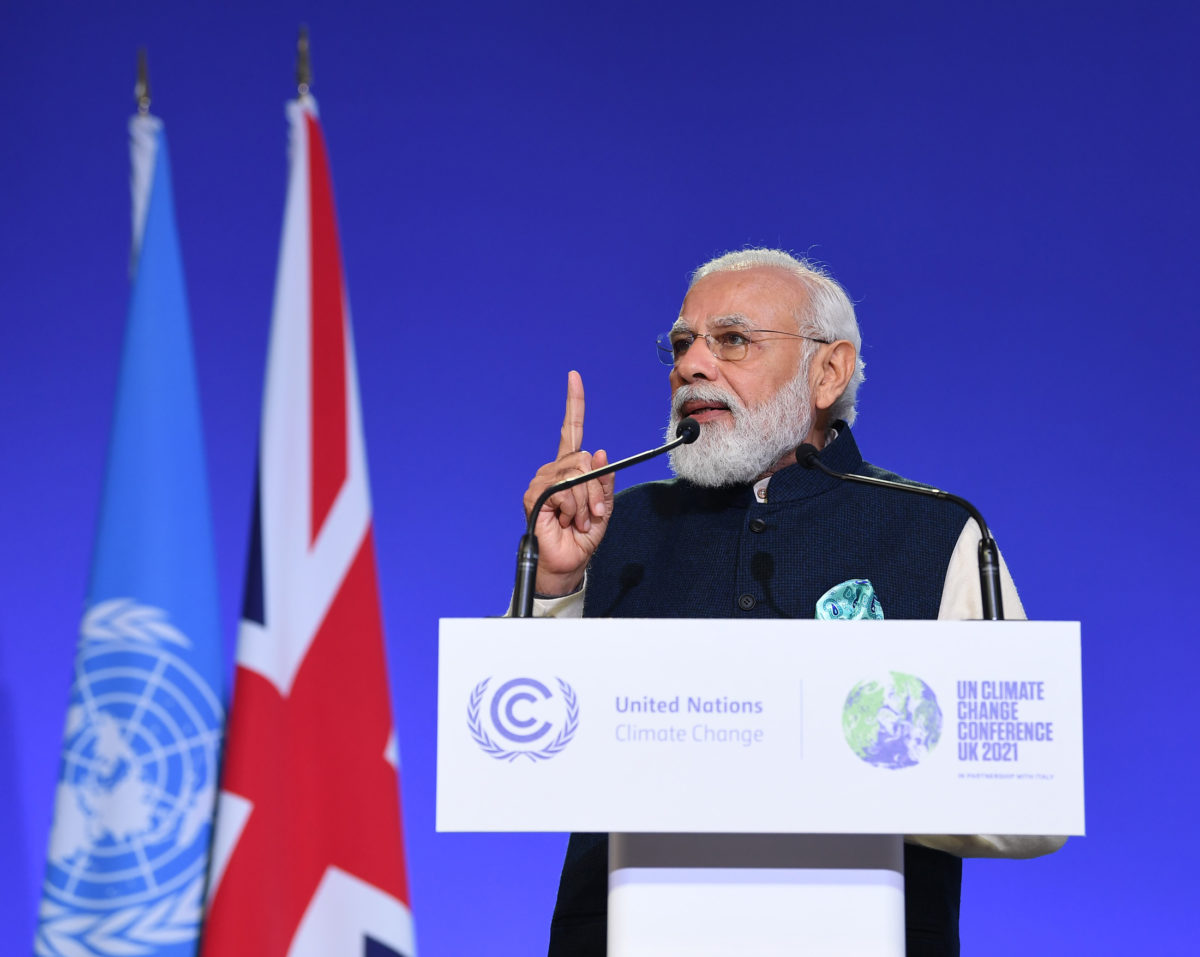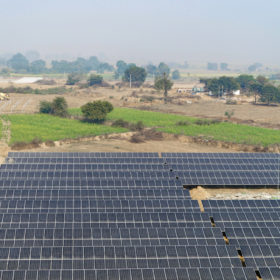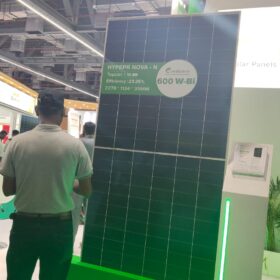At COP 26 Summit held in Glasgow, prime minister Narendra Modi announced India’s pledge to achieve net-zero by 2070, demonstrating the nation’s commitment towards addressing the climate crisis.
The prime minister also announced India’s updated nationally determined contributions (NDCs) at the meet. The nation pledged to increase its non-fossil energy capacity to 500 GW by 2030 and meet 50% of its overall energy requirements from renewable energy by 2030. India would reduce its emissions intensity by close to 45% by 2030 as well as reduce one billion tonnes of carbon emissions by 2030, announced the prime minister.
Under the 2015 Paris agreement, India had committed to achieving 40% of all installed electricity generation capacity to be from non-fossil energy sources by 2030 and reducing emissions intensity by 33% to 35% below 2005 levels.
Currently, India has an installed electricity generation capacity of close to 380 GW. With 500 GW of non-fossil fuel capacity in the electricity system by 2030, India shall be able to cut its dependency on thermal power assets which are suffering from low efficiency and vagaries of import prices.
PM Modi also asked developed countries to provide climate finance of $1 trillion to support developing countries in climate action. “Today, it is necessary that as we track the progress made in climate mitigation, we should also track climate finance,” he said.
Experts have hailed the prime minister’s bold announcements.
Ajay Mathur, Director General, International Solar Alliance, said, “PM Modi cut through the rhetoric and delivered a big promise of climate action from India. Reducing one billion tonnes of emissions by 2030 and expanding non-fossil capacity to 500 GW are enormous and transformative steps. 50% of electricity generation from renewable energy sources speaks to India’s leadership and commitment to climate action.”
Arunabha Ghosh, CEO, Council for Energy, Environment and Water (CEEW), said, “India has clearly put the ball in the court of the developed world. This is real climate action. Now India demands US$ 1 trillion in climate finance as soon as possible and will monitor not just climate action but also climate finance. Most importantly, India has called once again for a change in lifestyle. If we cannot fix how we live, we can’t fix how we live on this planet.”
Chandra Bhushan, CEO, iForest, said, “India’s announcement of an ambitious 2030 target and a net-zero target is a big step for climate collaboration. I congratulate the PM for announcing this bold step which will go a long way in greening the Indian economy and solving the climate crisis.”
Navroz Dubash, Professor, Centre for Policy Research, said, “The overseas media will focus on India’s net-zero by 2070 statement. But while it may mean something diplomatically—the last major economy in the bag— it will not be what drives change in India. Much more Intriguing are the announcements on railways, on non-fossil capacity and the benchmark for renewable energy. These are what give scope for India to drive a low carbon development transition in the next decade.”
On one billion tonnes of carbon emission reduction, R.R. Rashmi, Distinguished Fellow, TERI, said, “One billion tonne of reduction in absolute terms is massive. Compare this with the entire GHG inventory which is less than 3 billion tonnes today, and will be 4.5 billion tonnes in 2030. Committing to 1 billion is 25% of the inventory in 2030. This shows a tremendous leadership gesture and commitment to act now and fix the road to 2030. It also sets the stage for carbon markets. In a way, this means absolute emission reductions and this also means that India has set itself to commit to a peak in emissions without saying so explicitly.”
Dave Jones, Global Lead, Ember, said, “The world’s top 10 coal power countries have now all committed to Net Zero, as India announces a net-zero pledge at COP26. But coal will need to end one, two or even three decades before the net-zero dates that have been laid out. These net-zero ambitions now need to transform into near-term action on coal. Failing to act on coal will undermine the credibility of net-zero pledges.”
Vibhuti Garg, Energy Economist and India lead, IEEFA, said, India’s pledge to increase the share of renewable energy sources to 50% by 2030 would also reduce the emissions intensity of the economy by at least 45% from its 2005 levels. India is leading on climate action, it is doing more than its fair share.
“India is rightly asking for climate justice and asking developed nations to fulfill their promise of providing tech transfer and finance. In the past, developed nations have failed to fulfill their promise. India wants that expectation of such pledges should be based on principles of equity and common but differentiated responsibility, where the burden of accelerating the energy transition should fall more on the developed world in terms of timeline and that they should also facilitate tech transfer and finance,” Vibhuti added.
This content is protected by copyright and may not be reused. If you want to cooperate with us and would like to reuse some of our content, please contact: editors@pv-magazine.com.









3 comments
By submitting this form you agree to pv magazine using your data for the purposes of publishing your comment.
Your personal data will only be disclosed or otherwise transmitted to third parties for the purposes of spam filtering or if this is necessary for technical maintenance of the website. Any other transfer to third parties will not take place unless this is justified on the basis of applicable data protection regulations or if pv magazine is legally obliged to do so.
You may revoke this consent at any time with effect for the future, in which case your personal data will be deleted immediately. Otherwise, your data will be deleted if pv magazine has processed your request or the purpose of data storage is fulfilled.
Further information on data privacy can be found in our Data Protection Policy.